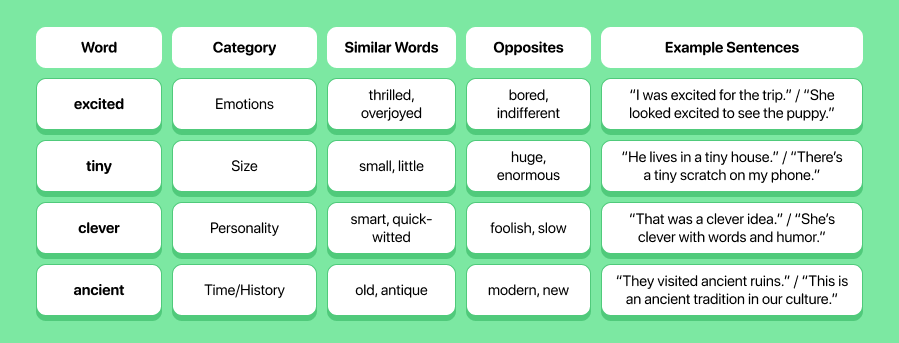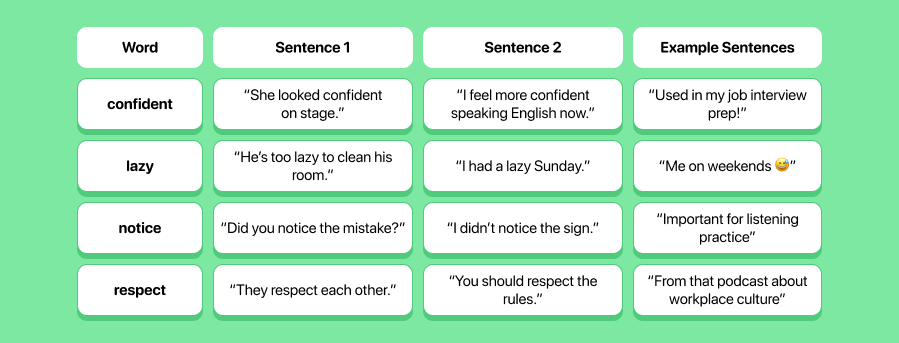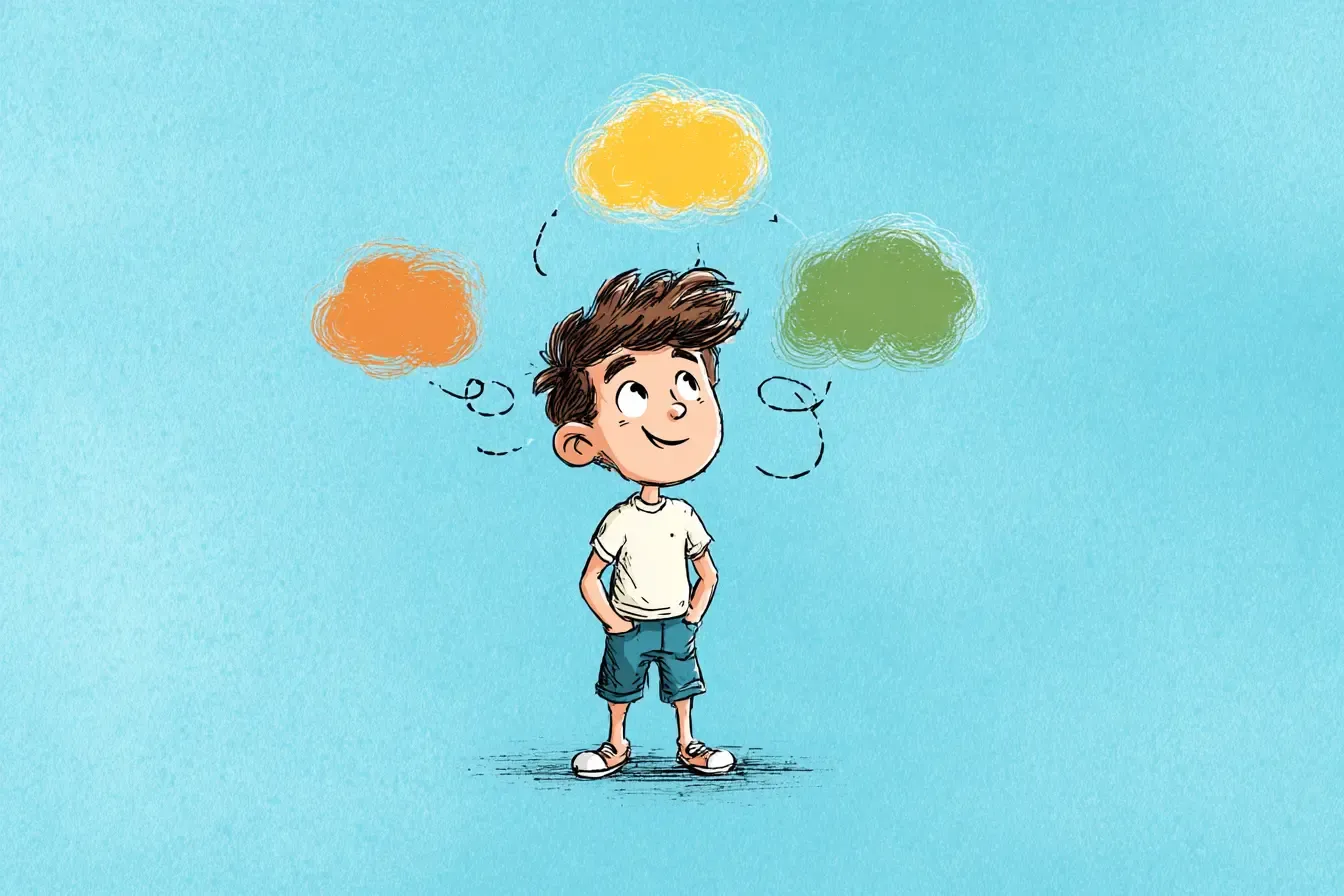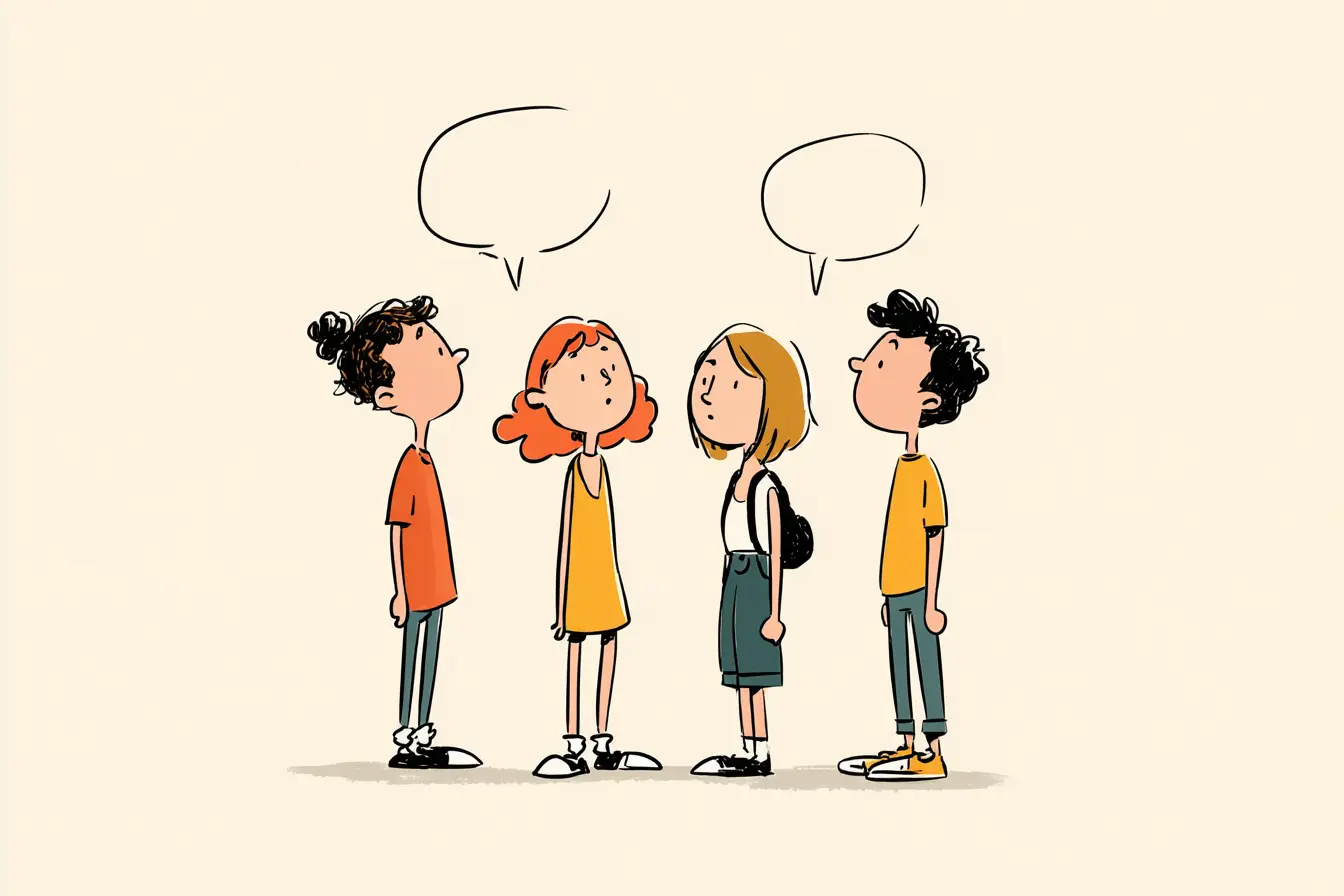There’s more to vocabulary learning than memorizing word lists. Words are like puzzle pieces, and if you don’t know how to fit them into real life, they’re just clutter in your mind. The real challenge is not only collecting vocabulary, but also keeping it and using it on a regular basis.
So, how do you stop forgetting new words after a day or two? And what’s the best way to learn vocabulary so it sticks for good? Here’s your practical guide.
Why We Forget Words So Fast
The human brain isn't wired to remember disconnected information. That’s why random word lists rarely work. We remember what feels meaningful, what we use, and what we encounter often. What helps you remember is relevance, repetition, emotion, and use. Make the words matter, and they’ll stay.
🎥 A Surprising Truth About Forgetting Words
Think forgetting new vocabulary means you're doing it wrong? Not quite. Watch this video and prepare to be surprised!
9 Proven Techniques That Actually Help You Remember
Ready to level up your memory? Here are the techniques that actually work.
1. Use Spaced Repetition (Even if You Hate Flashcards)
Learning something once is easy, but remembering it a week later is the real win. The secret is spaced repetition: reviewing information at increasing intervals. You don’t cram 20 words in one sitting; you revisit 5-10 words regularly until they sink in.
With EWA, you can build custom word lists and review them daily through flashcards and game-like repetition. It takes minutes, but it trains your memory long-term.
👉Try this: Choose 8–10 new words a day and review them over the next week. You’ll only need less than 15 minutes a day, but the results are far better than guessing on a test.
2. Turn Words Into Webs: Use Word Maps & Categories
Random words get lost, but organized words get remembered. Instead of learning a word in isolation, learn new words within the context of categories. Make a map, group them by emotion, function, topic, or opposites.
Here’s a quick table to show how:

Writing, grouping, and saying these aloud helps solidify your vocabulary in context.
3. Learn in Phrases, Not Just Words
If you only learn “take,” what do you do with it? Phrases give you usable language. They build context, which is key for fluency. If you want to know how to learn vocabulary that works in conversations, this is it.
Learn chunks like:
- take a break
- take responsibility
- take care of
- take your time
- take a look
- take notes
Then, use them in mini-dialogues:
“I need to take a break.”
“Can you take care of this while I’m gone?”
“Let me take a look at it.”
4. Speak Every New Word Out Loud (Twice)
Reading silently is fine, but speaking out loud makes it stick. Your mouth learns, not just your brain. Don’t just repeat the word; it’s better to say new words in full sentences. Try this with two examples for each:
- delicious → “This cake is delicious.” / “We had a delicious meal last night.”
- borrow → “Can I borrow your pen?” / “I borrowed a book from the library.”
- honest → “She was honest about her feelings.” / “Let’s have an honest conversation.”
- busy → “I’ve been so busy lately.” / “He’s always busy with work.”
Use EWA’s lessons to practice this with real movie quotes and scenes. You mimic the actor, listen to yourself, and sound more natural each time.
5. Make Words Emotional and Personal
The more you feel a word, the better you remember it. Link vocabulary to things you care about: people, places, pets, moments, anything.
Let’s say you’re learning:
- grateful → “I feel grateful when my grandma bakes for me.” / “He looked grateful after the accident.”
- jealous → “She was jealous of her sister’s success.” / “That cat gets jealous when I pet the dog.”
- relaxed → “I’m most relaxed at the beach.” / “Music helps me feel relaxed after work.”
- surprised → “I was surprised by how good it tasted.” / “He surprised her with flowers.”
6. Read and Listen, Then Write and Use
You’ve heard it a million times: “Read and listen in your target language.” And it’s true, but don’t stop there. To lock it in, you’ve got to use it. After reading or listening, take two minutes to write or say something with the words you heard. For example, if you heard:
- recommend
- confused
- improve
- challenge
Use them like this:
“Can you recommend a good book?”
“I felt confused by the instructions.”
“I’m trying to improve my pronunciation.”
“Learning a new tense is a real challenge.”
7. Learn by Living: Surround Yourself With Language
You don’t need to wait for a study session. Vocabulary is everywhere if you look. Label things around your home, or challenge yourself at the grocery store to name things in your target language:
- apple, lettuce, cereal, yogurt
- shampoo, toothbrush, sponge, soap
You’ll build vocabulary that’s real and relevant to your life.
8. Make It a Game
Turn learning into play. Set word goals, make silly sentences, and test yourself in creative ways.
Try one of these each week:
- Make a 5-sentence story using 5 new words.
- Describe a photo using 6 new adjectives.
- Use 4 opposites in one dialogue.
- Invent fake news headlines with your newest 8 verbs.
9. Build Your Own Dictionary (But Make It Fun)
Write down new words, but make your notebook or digital list personal and interesting.
Here’s what to include:

Decorate it or doodle in it if you want. If it makes you smile or helps you remember, it works.
You’ll never truly master a language by memorizing. But if you interact with words in conversations, stories, jokes, and songs, they become part of your thinking. So if you’ve been asking how to learn English words, or any foreign language vocabulary, this is your toolkit.
FAQ
1. How to learn vocabulary effectively?
The most effective way is to combine spaced repetition, real-life usage, and emotional connection. Don’t just memorize; use words in context, say them out loud, write personal sentences, and review regularly. Apps like EWA help by turning word learning into an interactive, engaging habit.
2. Should I learn vocabulary by topic or frequency?
Both approaches are useful, but topic-based learning often works better for beginners or practical situations (e.g., food, travel, work). Frequency-based lists are great for boosting comprehension with high-use words. The best method? Mix both, and always learn words in meaningful phrases, not in isolation.
3. How to learn English vocabulary?
Focus on words you’ll actually use. Watch English videos with subtitles, write down useful phrases, and say them out loud in complete sentences. Keep a small word list with meanings and examples. Review a few words every day. Speak, write, and use the words in real situations to make them stick.
4. How many new words should I learn per day?
It depends on your pace, but 5–10 new words a day is a sustainable goal for most learners. What matters more than quantity is repetition and use. It’s better to know 5 words deeply than to forget 20 after one day.


















